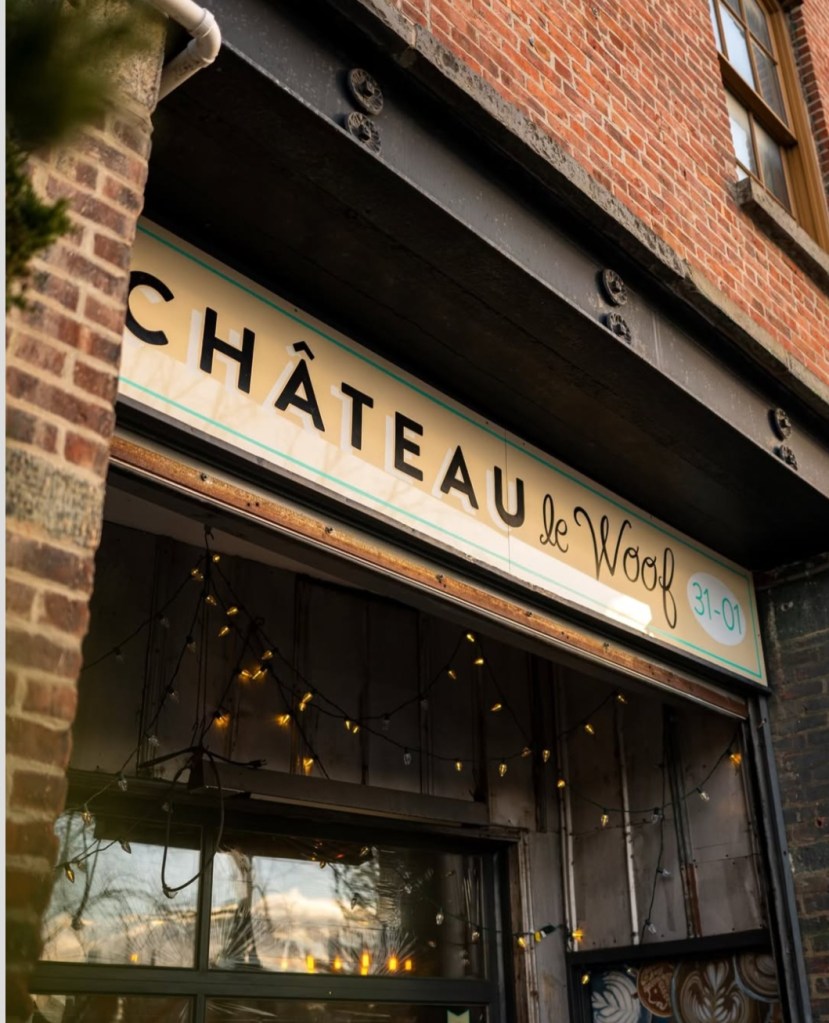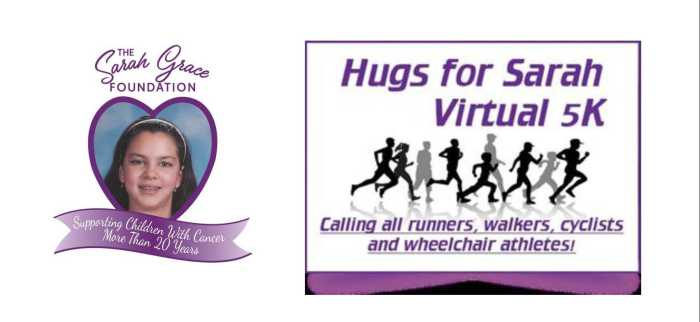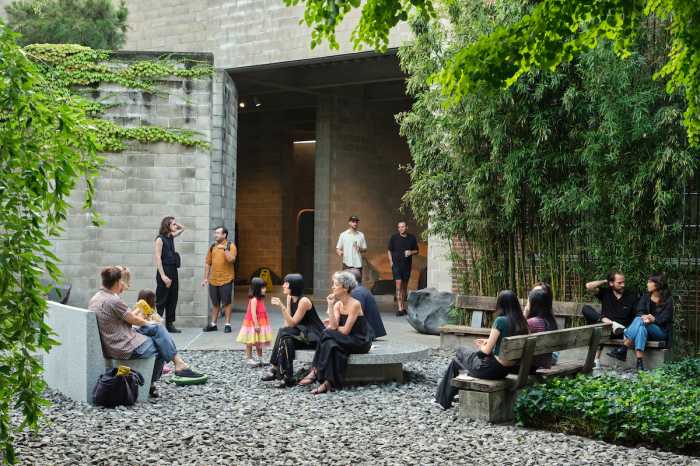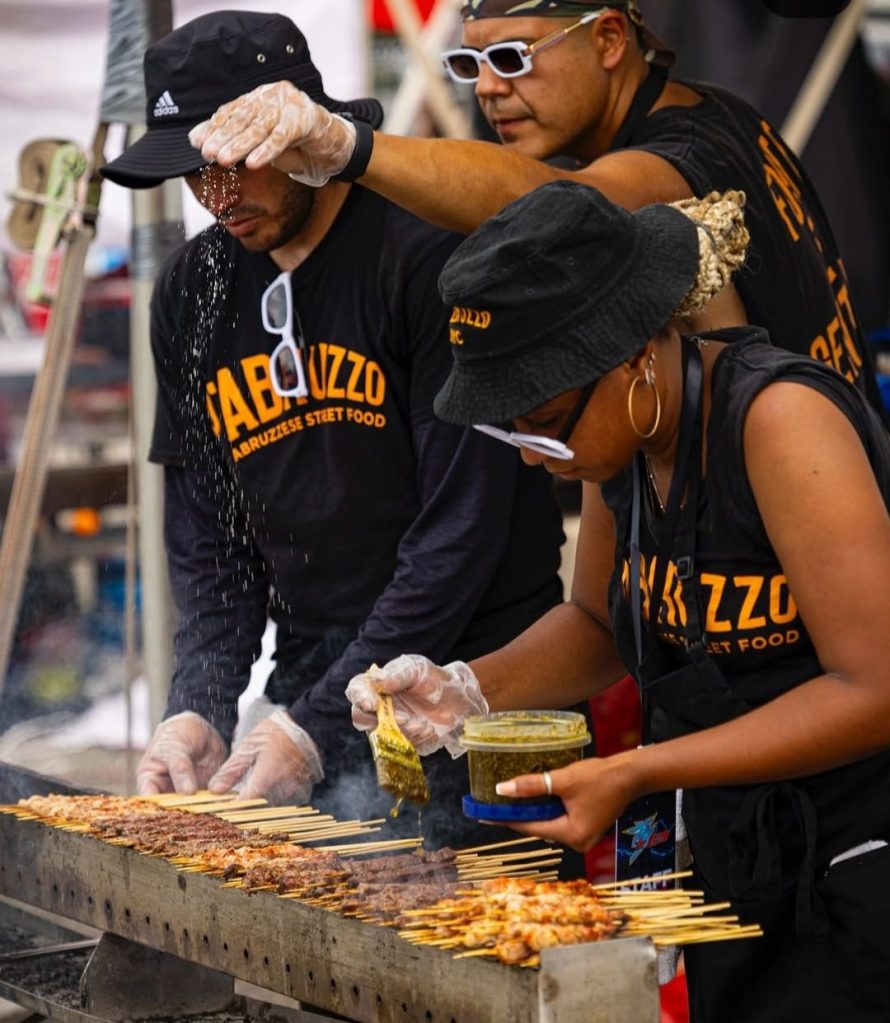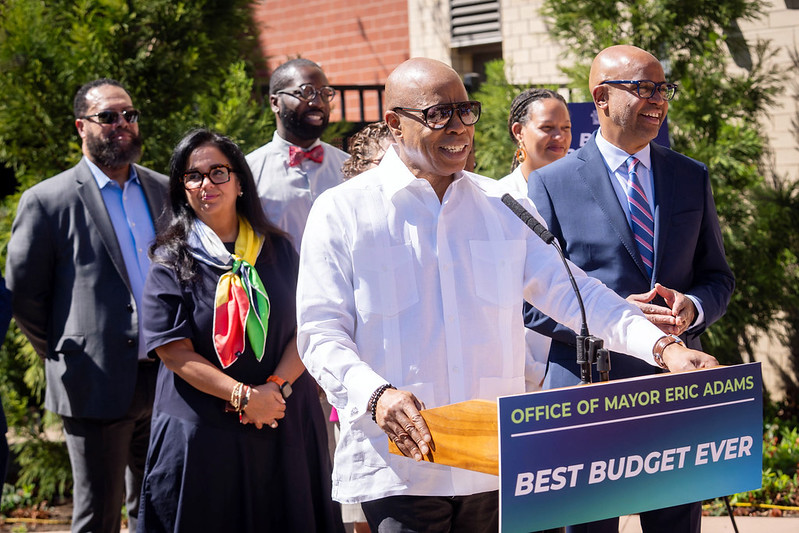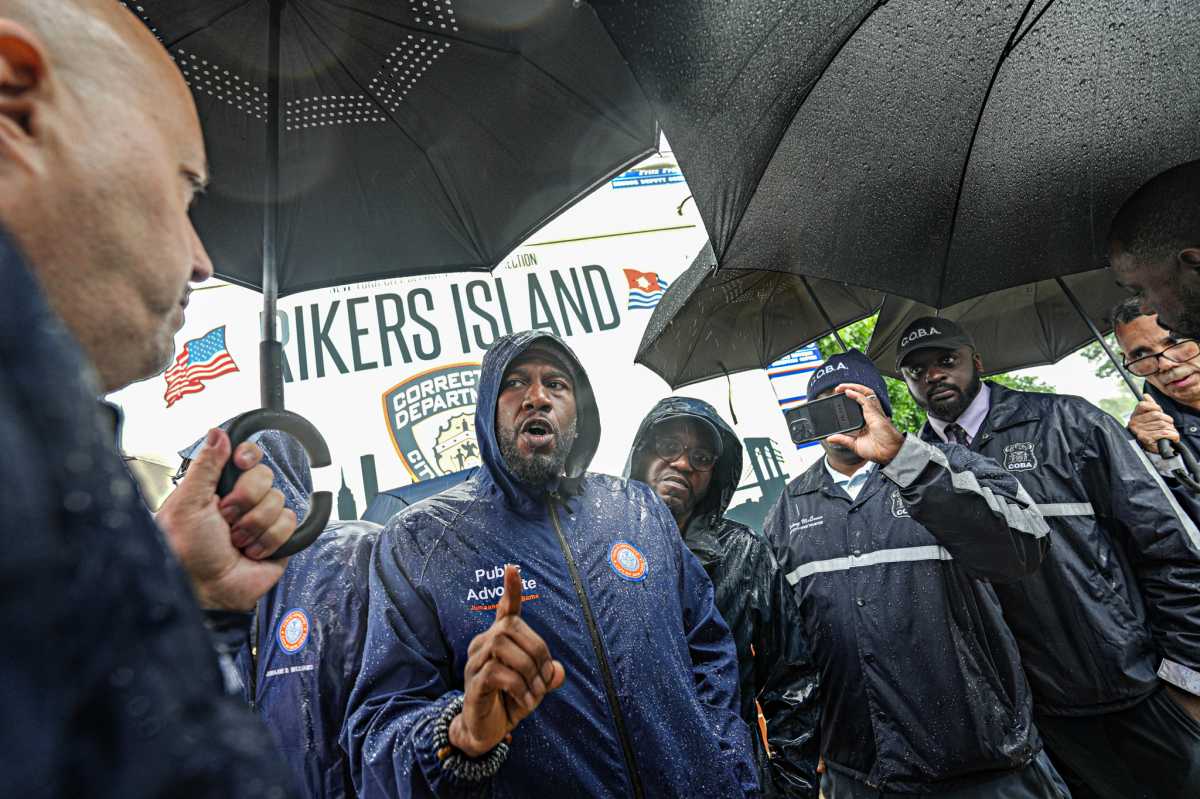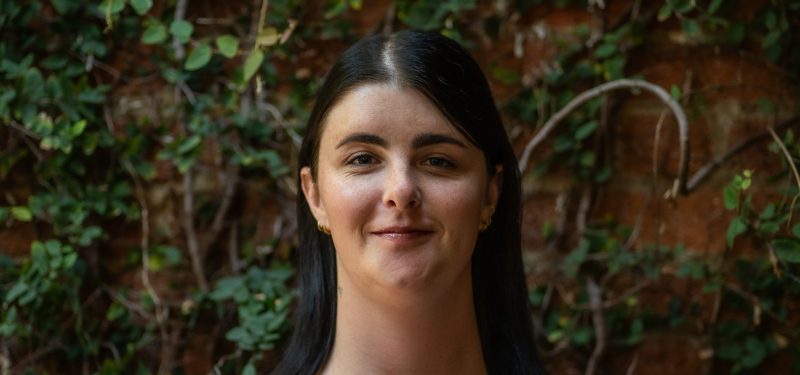By Sarina Trangle
A dozen people watched the white van back into Rufus King Park in Jamaica, some with black trash bags in hand, others leaning on grocery carts.
As River Fund staff began unloading boxes of hams and chickens on a table, the people who were lined up Tuesday morning peppered them with questions:
“Can you help me find housing? My father died and he chipped in for rent.”
“Can my daughter reapply for food stamps?”
Normally, the River Fund, a Richmond Hill nonprofit dedicated to helping those living in or near poverty, unpacks boxes from its mobile food pantry across several tables, allowing people to select produce, bread, yogurt, meats and starches.
The ice lining the park Tuesday morning prevented such an operation. Instead, Shirley Rice, chief operating officer at River Fund, noted clients’ names and household sizes and Parker Sarabjeet and David Emanuel passed them plastic bags stuffed with rice, pasta, cabbage, milk, applesauce, carrots, spinach, soup and a ham or chicken.
“It’s very helpful, excellent,” said Pearl Lormestil, who has taken to helping distribute food with River Fund after picking up groceries from the mobile pantry for eight years. “I’m a cardiac patient. I can’t stand too long. Here it’s quick.”
In spring 2012, the River Fund became the first government-certified mobile food pantry in the state.
Swami Durga Das, executive director of the River Fund, said the portable program grew out of his joining a friend in giving out sandwiches in Rufus King about 17 years ago. Gradually, the two began serving cooked food and soliciting volunteers. Das said he realized the recipients needed more long-term solutions and sought to bring groceries.
For years, the River Fund stocked the van with food that was donated or emergency supplies it was given from the city and state through the government-certified program it operates out of its 89-11 Lefferts Blvd. headquarters.
Getting the city Department of Health to certify the mobile program gave River Fund access to more resources. Currently, River Fund gets food donations from private companies and a few farms as well as resources from the government.
“It took about a year because they really weren’t sure. They had never had anyone do it,” Das said of city Health Department staff. “We were the first. In the city, state and, I think, the nation.”
Within six months, the van was driving to Coney Island, where it partnered with a church whose food distribution program was disrupted by Sandy. The route grew to include about 20 sites in Brooklyn and the Rockaways, but has since been scaled back, Das said.
Between the truck’s biweekly stops in Rufus King Park, where an average of 250 people line up to receive food, and in Brooklyn, Das said River Fund hands out between 4,000 and 6,000 pounds of food weekly.
Das said the organization, which helps clients access 44 types of benefits from phones to vitamins, has counted twice as many clients in need of food since cuts to the Supplemental Nutrition Assistance Program took effect this November.
The federal government has since approved $8.55 billion worth of cuts in funding over the next decade to SNAP, often colloquially referred to as food stamps.
The looming cuts have Queens residents like Carl Bryant, 64, concerned.
“Whatever I get I use,” said Bryant, who relies on Social Security disability benefits to pay his bills and help his sister, who is ill and has limited mobility, support two grandchildren. “They’re always cutting something.”
Das said River Fund is bracing for the impact as well.
“It’s always in the back of my mind that we won’t have enough,” he said. “We’re talking some 20,000 pounds of food that come in and out every week.”
Reach reporter Sarina Trangle at 718-260-4546 or by e-mail at strangle@cnglocal.com.




